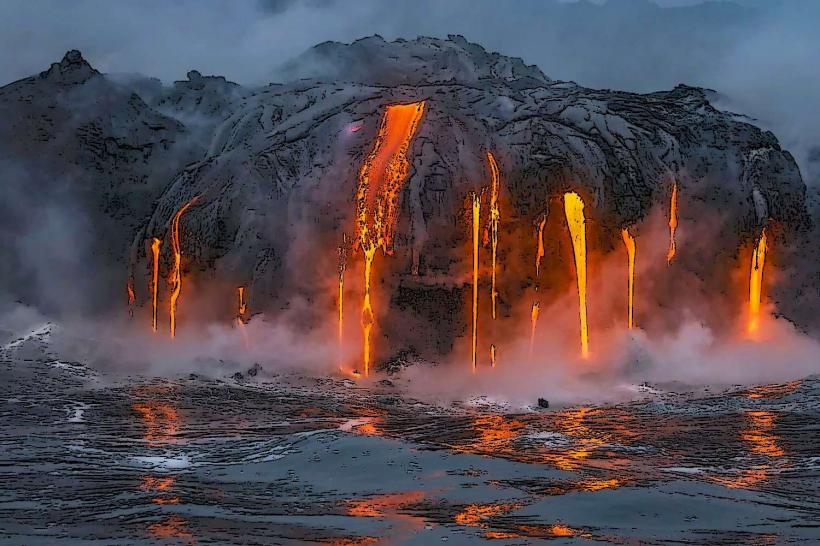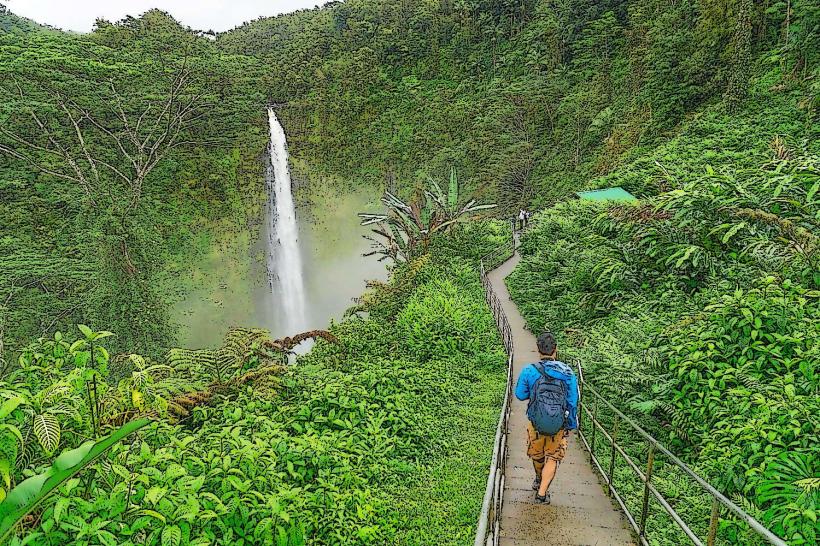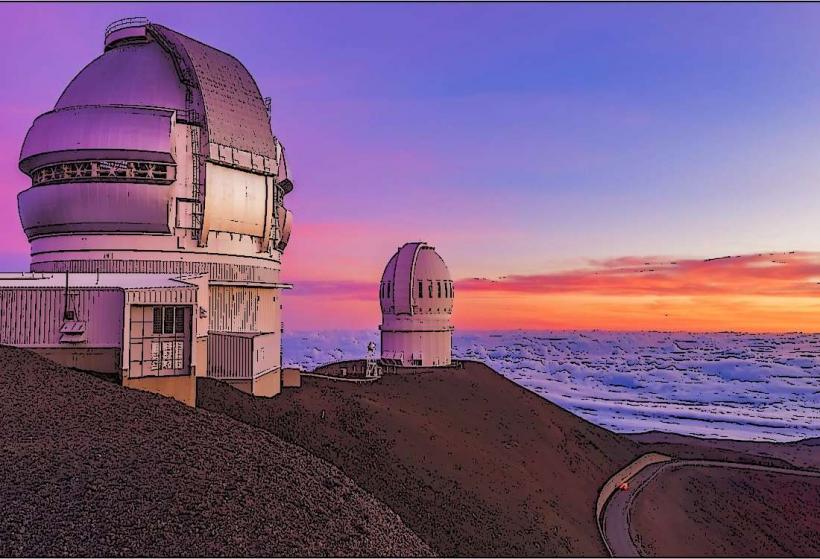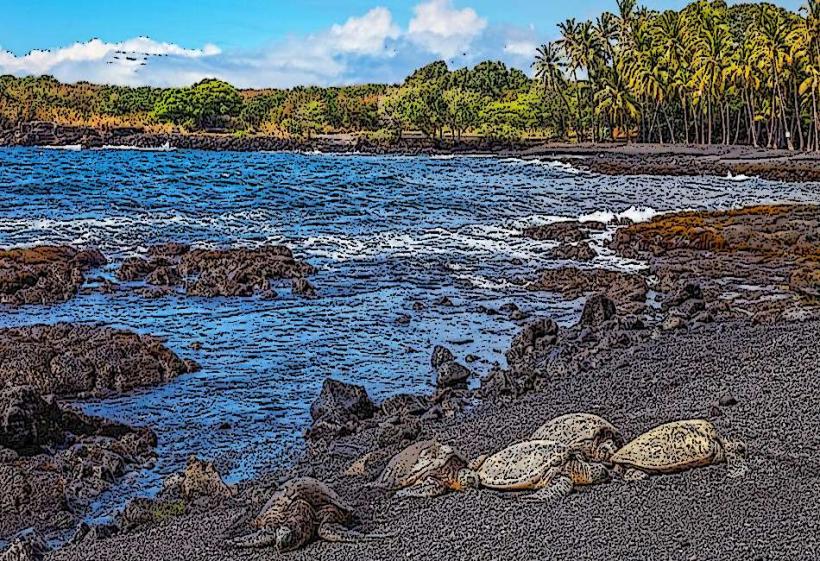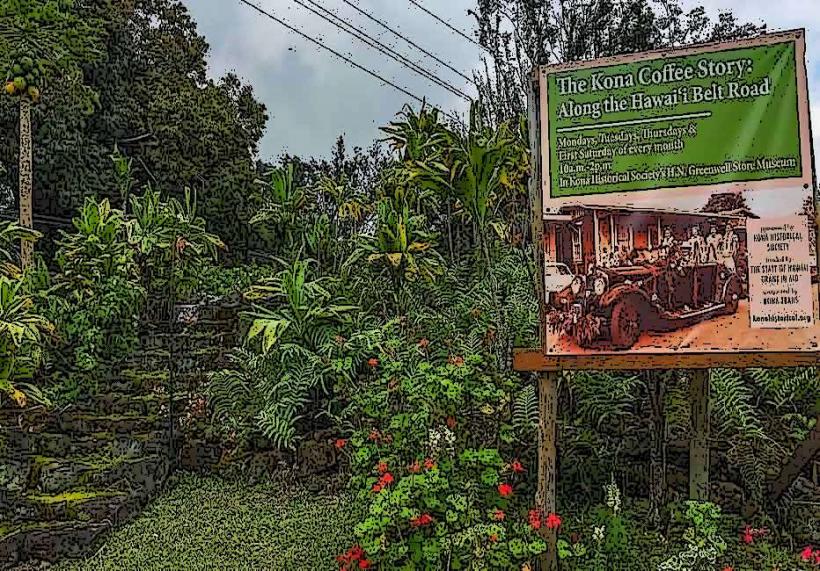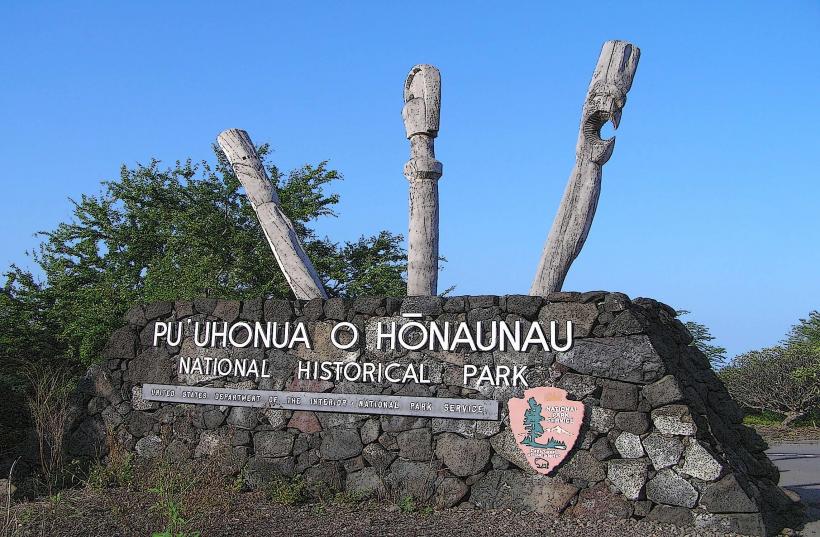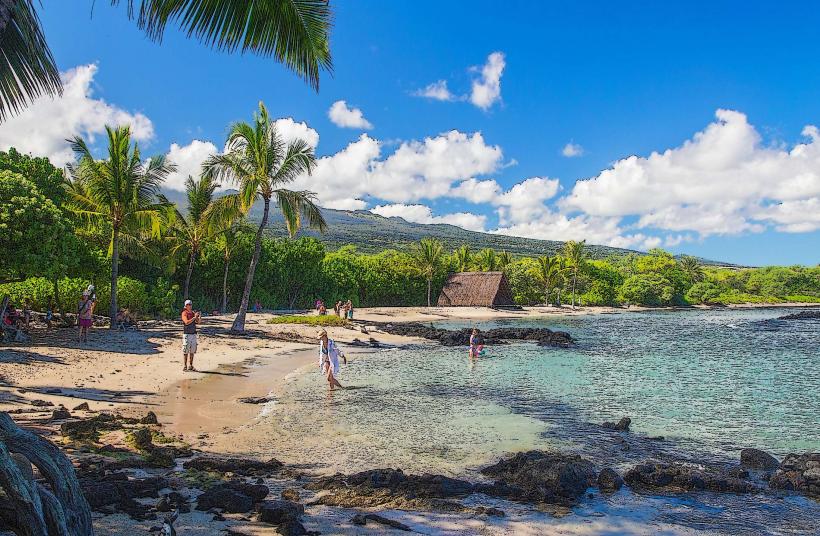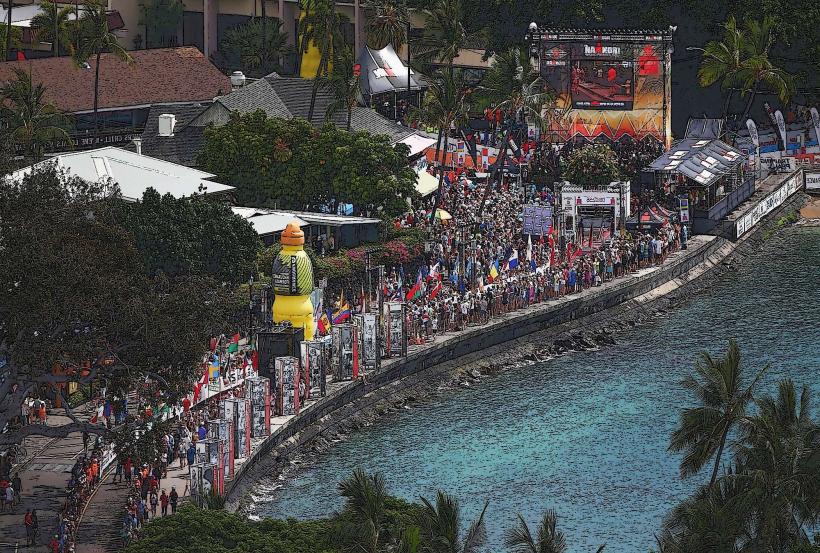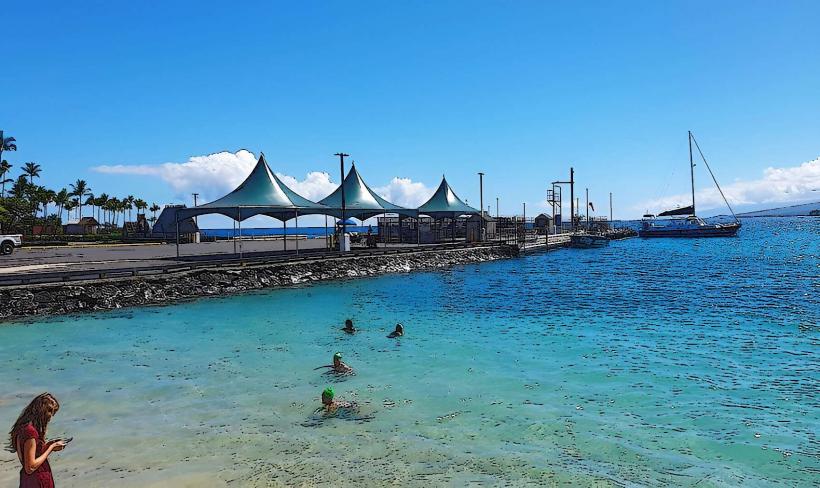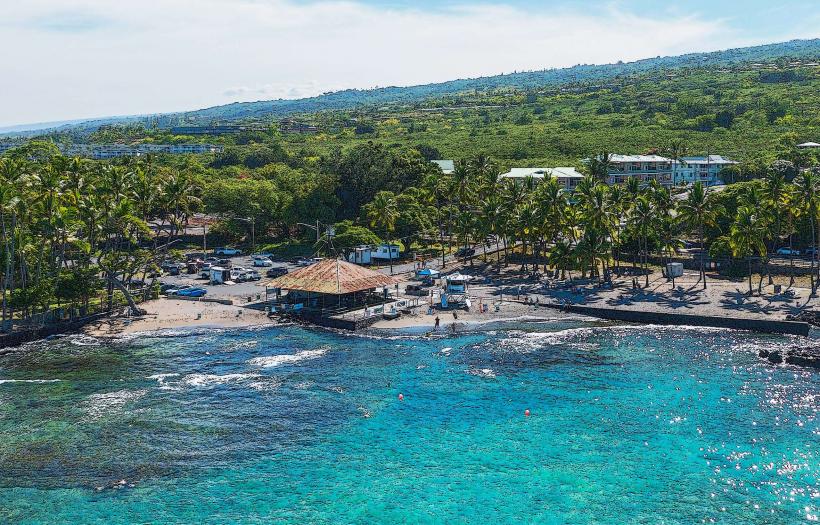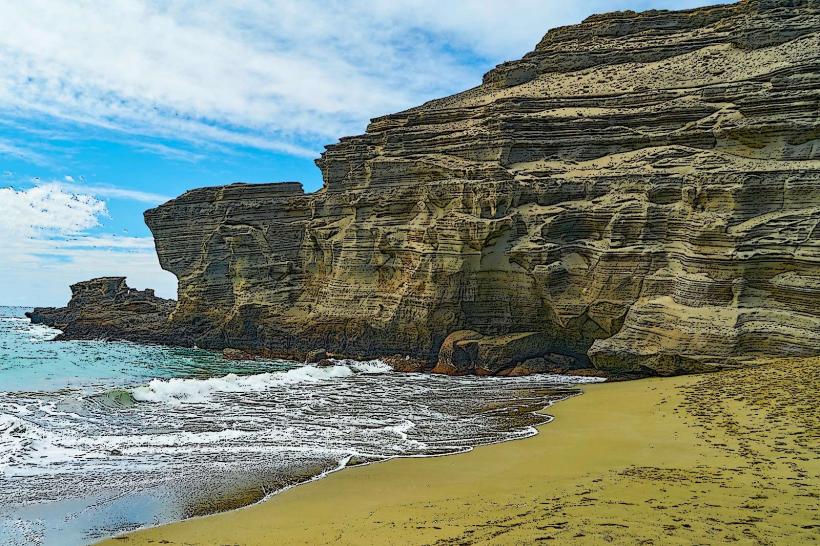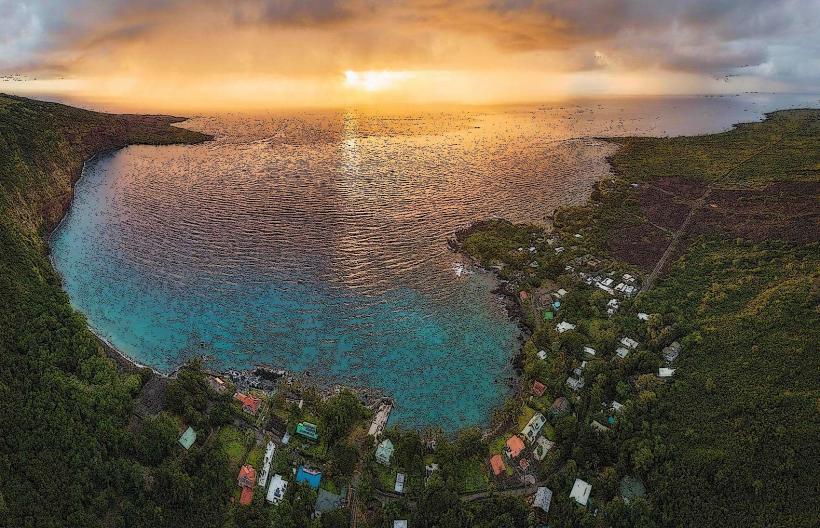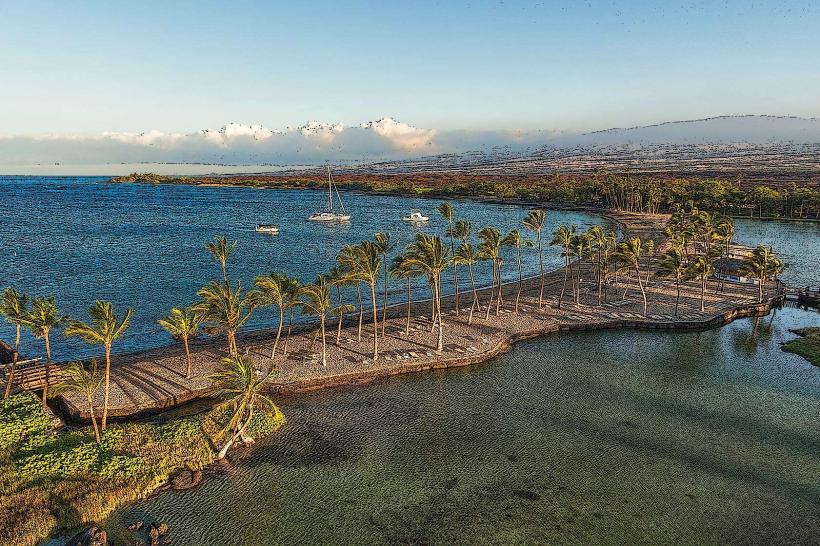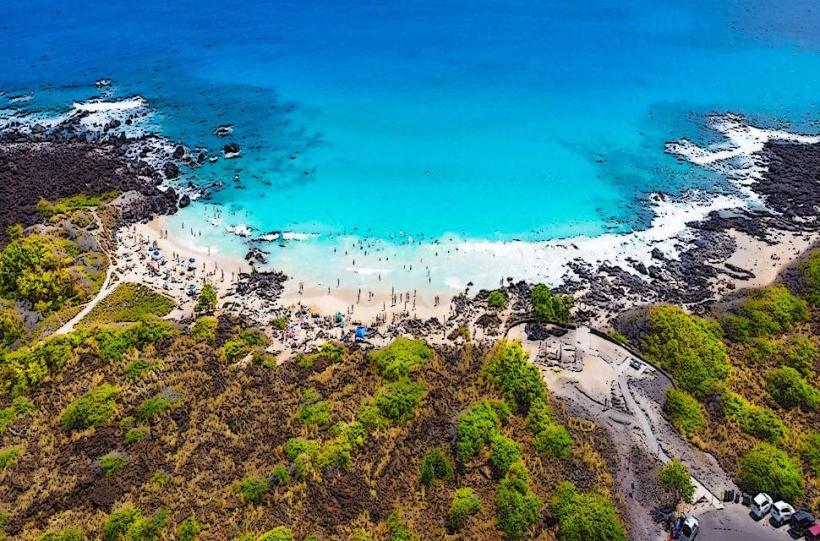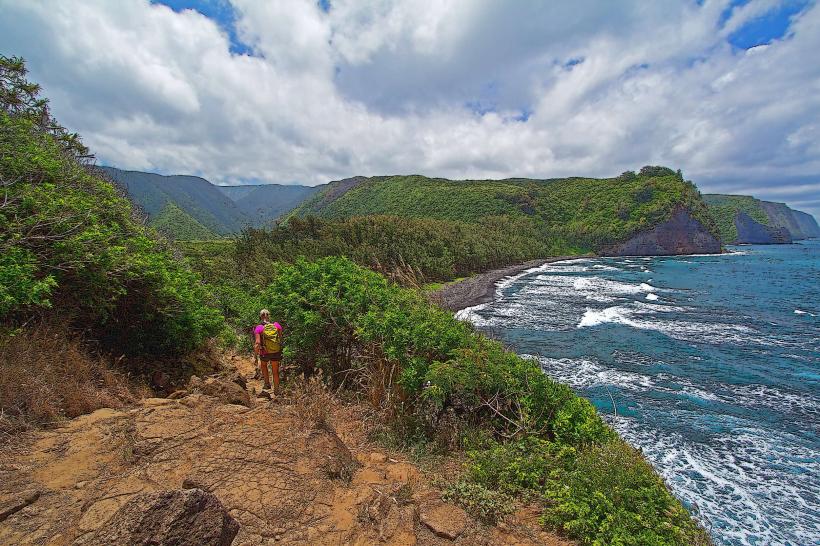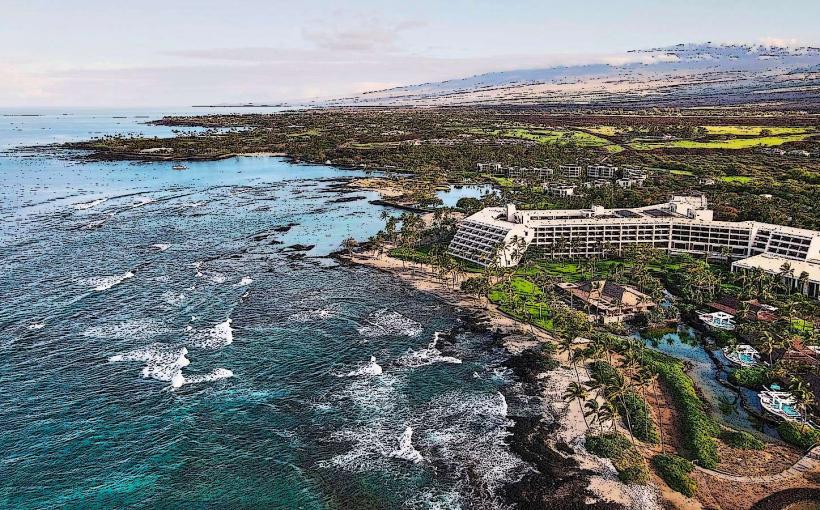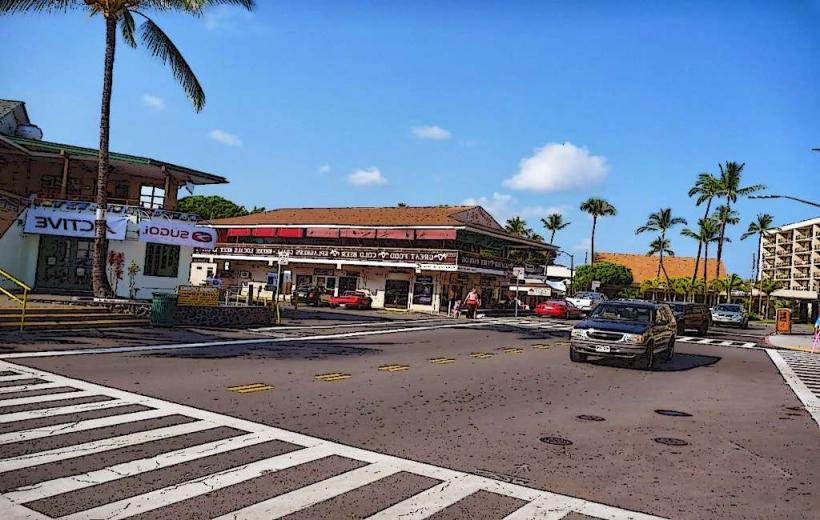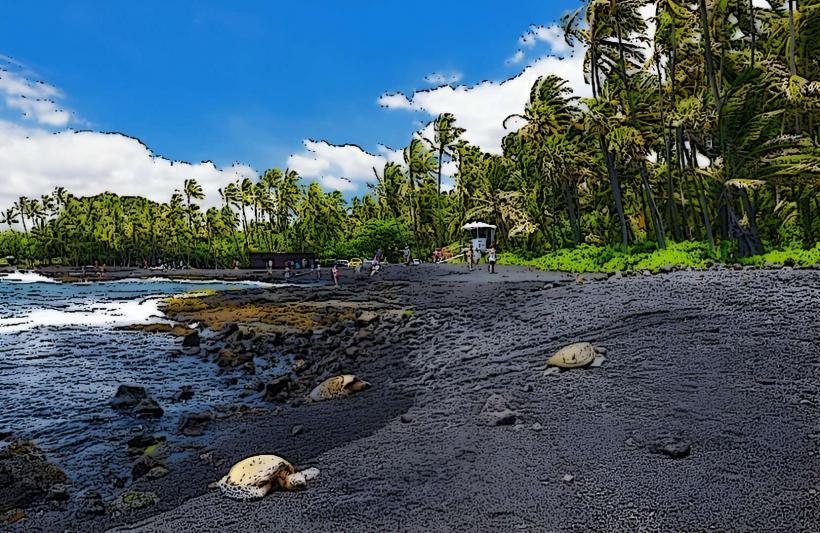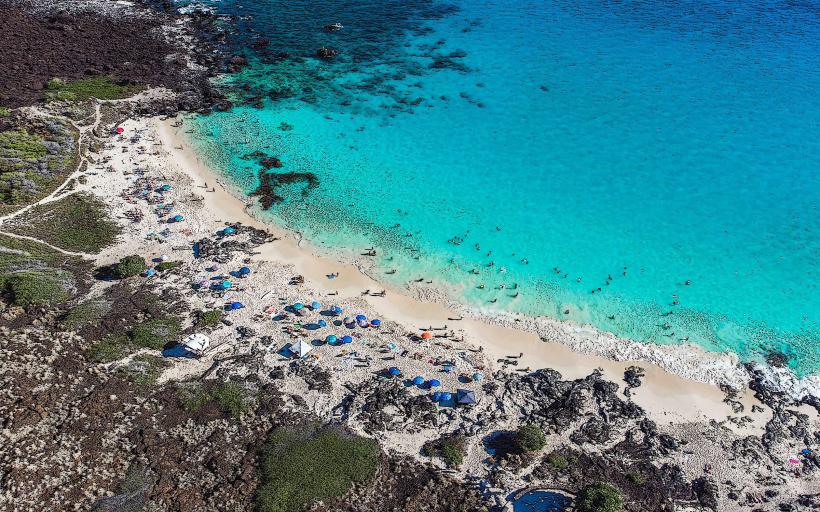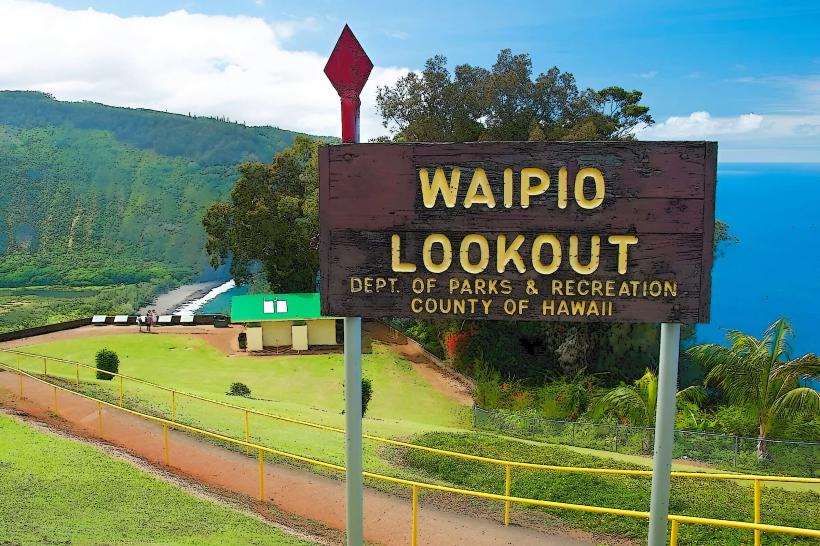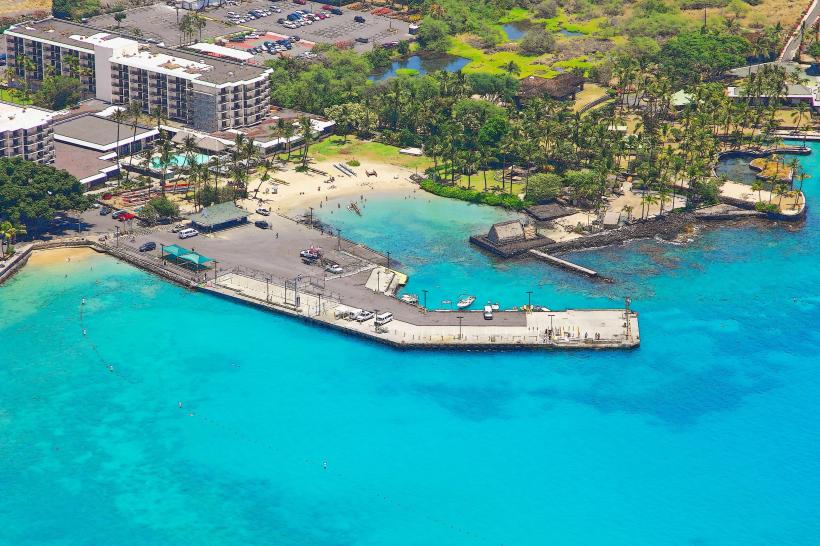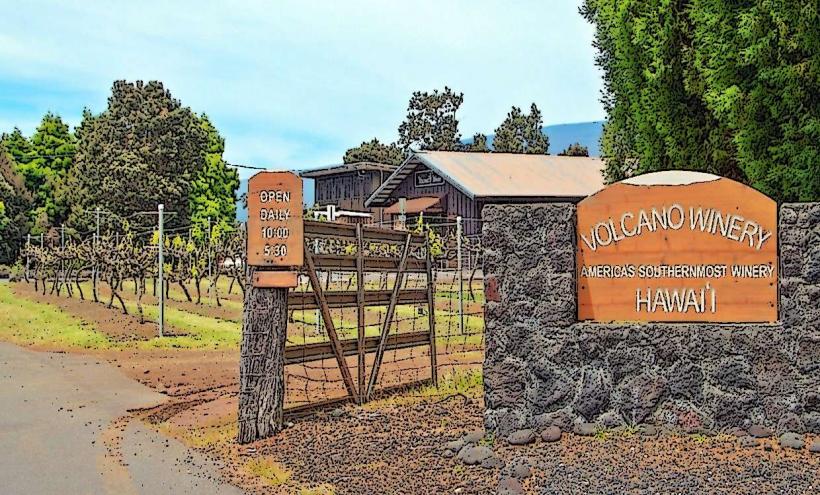Information
Landmark: Lava Tube at Hawaii VolcanoesCity: Kailua Kona
Country: USA Hawaii
Continent: North America
Lava Tube at Hawaii Volcanoes, Kailua Kona, USA Hawaii, North America
Lava Tubes at Hawai‘i Volcanoes National Park: A Comprehensive Guide
Location:
Hawai‘i Volcanoes National Park is located on the Big Island of Hawai‘i, about 30 miles southwest of Hilo. Within the park, one of the most famous lava tubes is Nāhuku (commonly known as the Thurston Lava Tube), located along Crater Rim Drive.
What Are Lava Tubes?
Lava tubes are natural tunnels formed when flowing lava cools and hardens on the surface while molten lava continues to flow beneath. Once the eruption ends and the lava drains away, it leaves behind hollow passageways.
Key Features of Lava Tubes:
- Formation: Created during volcanic eruptions, lava tubes can vary in size from small crawl spaces to massive tunnels tall enough to walk through.
- Geological Importance: Lava tubes help scientists study volcanic activity, lava flow dynamics, and the geological history of the area.
Nāhuku (Thurston Lava Tube)
Overview:
- Nāhuku is one of the most accessible and famous lava tubes in Hawai‘i.
- It was discovered in 1913 by Lorrin Thurston, a local newspaper publisher and explorer.
- The tube is about 600 feet long and illuminated for safe exploration.
What to Expect:
Trail to the Tube:
- A short, 0.3-mile loop trail leads to the lava tube.
- The trail winds through a lush tropical rainforest, featuring native ferns and birdlife.
Inside the Tube:
- The tube has a smooth, hardened lava floor and high ceilings, making it easy to navigate.
- Artificial lighting highlights the natural features of the tube, although some parts can be dim.
Atmosphere:
- Walking through the lava tube feels like stepping into a prehistoric world.
- The cool, damp environment contrasts with the heat of the volcanic landscape above.
Other Lava Tubes in Hawai‘i Volcanoes National Park
1. Kazumura Cave:
- Description:
- The longest lava tube in the world, stretching over 40 miles and descending 3,600 feet.
- Located outside the park but accessible via guided tours.
- Highlights:
- Features such as lava falls, tube-in-tube formations, and intricate lava stalactites.
2. Mauna Loa Lava Tubes:
- Found throughout the park, these tubes are less accessible and often require special permits or guided tours.
- Best for experienced hikers and spelunkers.
Why Visit the Lava Tubes?
Unique Geological Formation:
- Lava tubes are a direct result of Hawai‘i’s volcanic activity and provide insight into the island’s fiery origins.
Connection to Hawaiian Culture:
- Lava tubes are sacred in Hawaiian traditions, symbolizing Pele, the goddess of volcanoes.
Scenic Diversity:
- The lush rainforest surrounding Nāhuku contrasts dramatically with the stark volcanic landscapes elsewhere in the park.
How to Explore Nāhuku
Getting There:
- From the Kīlauea Visitor Center, it’s a 10-minute drive along Crater Rim Drive to the Nāhuku parking area.
- The parking lot is small, so arrive early to avoid crowds.
What to Bring:
- Comfortable Footwear:
- The trail and tube can be wet and slippery.
- Flashlight or Headlamp:
- Although the tube is lit, bringing your own light enhances the experience.
- Rain Gear:
- The rainforest surrounding the tube is often misty or rainy.
When to Visit:
- Nāhuku is open daily but closes at night.
- Early mornings or late afternoons offer fewer crowds.
Other Activities Nearby
1. Kīlauea Caldera and Halema‘uma‘u Crater:
- Witness the dramatic landscapes of one of the world’s most active volcanoes.
- Depending on volcanic activity, you may see glowing lava at night.
2. Devastation Trail:
- A short hike through a stark landscape left by a 1959 eruption.
3. Chain of Craters Road:
- Drive through scenic volcanic terrain, leading to dramatic ocean cliffs where lava once entered the sea.
Tips for Visiting Lava Tubes
Stay on Designated Paths:
- Protect yourself and the delicate ecosystem by avoiding off-trail exploration.
Respect Hawaiian Culture:
- Lava tubes are considered sacred. Be mindful of their cultural significance and refrain from disturbing them.
Check Current Conditions:
- Weather and volcanic activity can affect access to trails and features. Consult the National Park Service (NPS) website or Visitor Center for updates.
Why Lava Tubes Are a Must-See
Lava tubes like Nāhuku offer a unique glimpse into the dynamic volcanic forces that shaped the Hawaiian Islands. Combining natural beauty, scientific wonder, and cultural reverence, they are a highlight of any visit to Hawai‘i Volcanoes National Park. Whether you're an adventurer, nature lover, or history enthusiast, the lava tubes are sure to leave a lasting impression.

